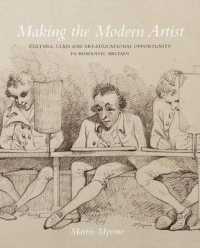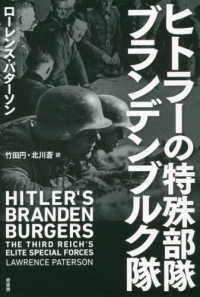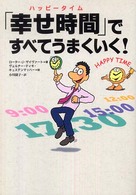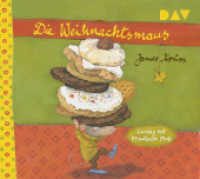Full Description
Because of its powerful socializing effects, the school has always been a site of cultural, political, and academic conflict. In an age where terms such as 'hard-to-teach,' and 'at-risk' beset our pedagogical discourses, where students have grown up in systems plagued by anti-immigrant, anti-welfare, 'zero-tolerance' rhetoric, how we frame and understand the dynamics of classrooms has serious ethical implications and powerful consequences.
Using theatre and drama education as a special window into school life in four urban secondary schools in Toronto and New York City, The Theatre of Urban examines the ways in which these schools reflect the cultural and political shifts in big city North American schooling policies, politics, and practices of the early twenty-first century.
The Theatre of Urban not only explores the very notion of performance in a novel and interesting way, it also provides new insights into the conflicts that often erupt in these highly charged school spaces.
Contents
ForewordAcknowledgmentsPrologue CONTEXT Discourse, Space, and Competing Narratives Space and Subjects: Security, Surveillance, and 'Zero Tolerance' Photo Essay IN THE FIELD An Ethnographic Critique The Situated Character of Ethnography Disenchanted Youth, Falling Test Scores, Rigourous Curriculum and other Prevailing Myths SUBJECTIVITIES The Social and the Artistic Social Dramas: Relations of Power, Gender, and Race Imaginative Trespassing and Ethnographic Artefacts The Gay Other Not among Us: Sexuality and Its Guises Dark Dramas: The Occupied Imagination URBAN OBSESSIONS Pedagogies of Conflict Alternative Literacies and the Sociology of Aesthetics CONSTITUTING CULTURE AND CO-RESEARCH WITH YOUTH A Problem-Posing EthnographyReferencesName IndexSubject Index








